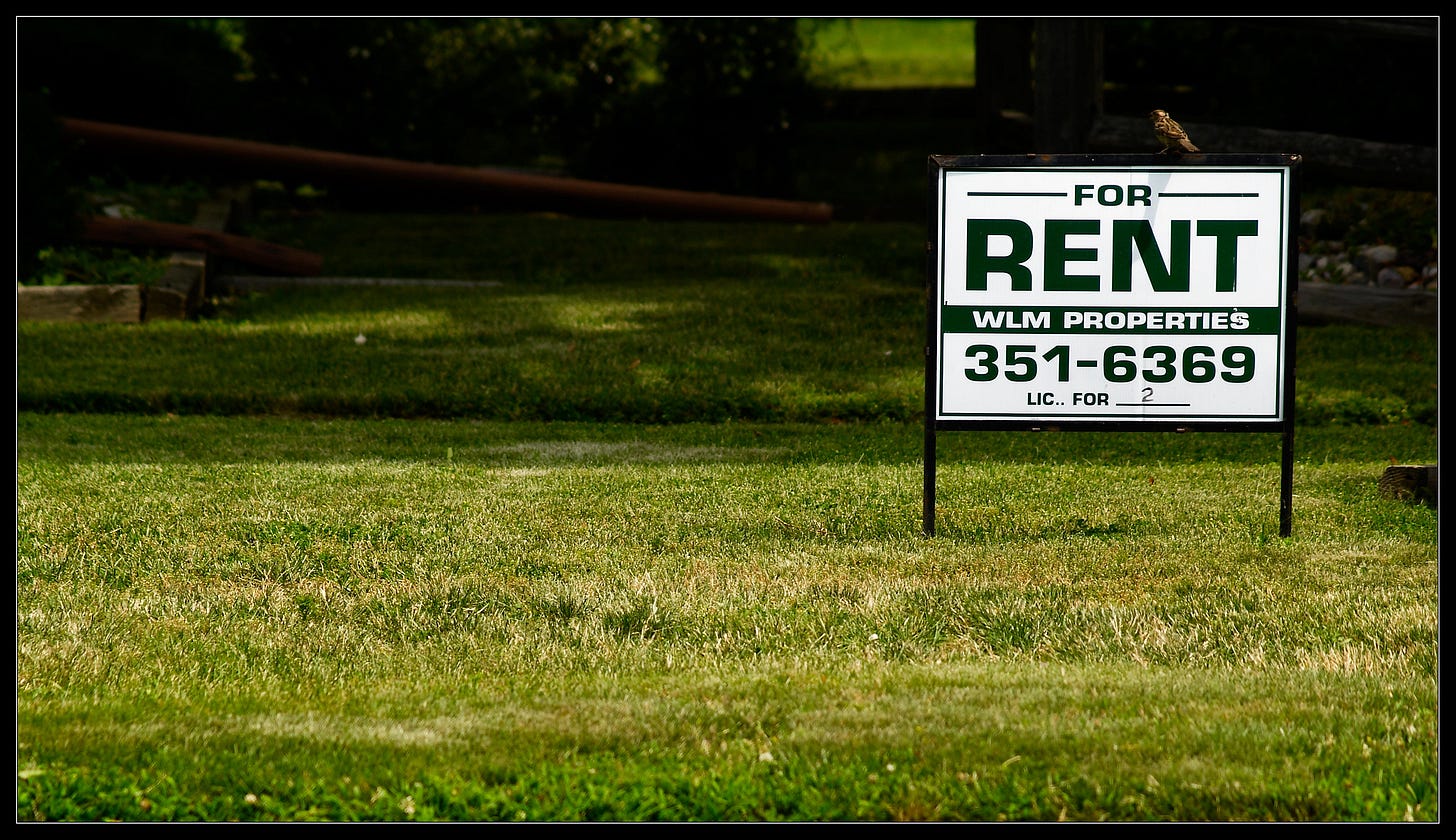
*Editor’s note: This will be the final edition of 2022! Thanks so much to all of you for reading, subscribing to, commenting on, and sharing this newsletter. I appreciate it so much. I’ll be back in January with my annual state legislative session preview. Happy Holidays!*
This is Boondoggle, the newsletter about corporations ripping off our states, cities, and communities. If you’re not currently a subscriber, please click the green button below to sign up. Thanks!
Corporate power raises the price of goods across the internet, the cost of food, and, according to some new research, even your rent.
A recent paper by economic researchers Jacob Linger, Hal Singer, and Ted Tatos shows that when corporate concentration in the housing sector goes up in a Census tract — meaning fewer corporations own more of the rental housing — rents go up. Specifically, they looked at Florida and found:
A positive and statistically significant relationship between rental market concentration and rents, suggesting that a 1% increase in HHI results in a 0.03-0.06% increase in rents, holding all else equal. … For example, suppose the HHI in a given tract is equal to 600 and that the average rent is $1,500. If the HHI doubles to 1,200, the average rent increases to $1,545-$1,590. If the HHI increases to 2,400, the average rent would increase to $1,590-$1,680.
HHI here stands for Herfindahl Hirschman Index, which is a measure of market concentration. In the map below, the areas in red are more concentrated. And that’s some real money we’re talking about here, equal to hundreds if not thousands of dollars per year, per renter, due to markets being consolidated in the hands of a few players.
They authors also found that more concentrated areas tend to experience more rental inflation, or higher and faster increases in rent, than would be expected in less concentrated markets.


These findings make intuitive sense. In a highly concentrated rental market, renters will have less ability to move to a new building with lower prices, because those buildings will be fewer and further between. Instead, developers that concentrate the market will hold rents consistent across their properties.
There will also be less competition in concentrated markets to poach renters from other developers, which is usually accomplished with lower rents and deals like giving folks their first couple of months rent free. And finally, there’s likely some soft price fixing at play (and maybe some not so soft as well), with the few big players moving rents for similar properties in tandem.
The paper’s authors, as a remedy, suggest caps on the percentage of a market any one developer can hold. Government at all levels, though, tends to do the opposite at the moment, instead setting up a web of tax breaks and subsidies that entrench the power of major developers.
Real estate development is one of the most heavily subsidized activities across the economy. At the federal level, developers benefit from a slew of handouts and loopholes worth about $35 billion per year, or $350 billion over a 10-year budget window. And at the state level, they reap big benefits from a host of programs, such as New York’s 421-a, Baltimore’s Enterprise Zones, or Florida’s Community Redevelopment Act, and on and on.
And then there are state-federal mish-mash boondoggles, like the Opportunity Zone program, where all levels of government get in on the fun together to plow more money into the hands of developers.
Real estate interests are also some of the biggest players in state and local elections, spending big on political donations in order to protect their lucrative subsidies and block any measures that would control rent increases. And those donations pay off, with one study finding that “Donating around a thousand dollars to a narrowly elected mayor significantly increases the donor’s sales of new construction by 12 percent.”
I haven’t seen any academic research on this, but I’d be willing to bet that this stew of political money and tax subsidies flowing in and out of the real estate industry helps entrench the dominance of the biggest players in each locale, in which becomes a self-reinforcing cycle — and therefore raises rents, as markets become and stay concentrated.
There are, of course, lots of other factors in play in local housing markets. But the next time you’re wondering why the rent is too damn high, you can at least partly blame a mix of corporate concentration and the terrible tax policies that enable it.
SHAMELESS SELF-PROMOTION: I was on the Oversharing podcast with Alison Griswold this week. You can give it a listen and subscribe to the Oversharing newsletter, which is excellent, here.
I also spoke a couple of weeks ago at the State Innovation Exchange national conference. I was on a panel discussing corporate lobbying and influence at the state and local level, and how to combat it. The panel was closed, so there’s no recording, but there were some nice photos.

![[ID: These are two group photos, and one photo of the panel]](https://substackcdn.com/image/fetch/$s_!7Oka!,w_600,c_limit,f_auto,q_auto:good,fl_progressive:steep/https%3A%2F%2Fpbs.substack.com%2Fmedia%2FFjfxu6wXgAEk1Im.jpg)


Thanks for reading this edition of Boondoggle. If you liked it, please take a moment to click the little heart under the headline or below. And forward it to friends, family, or neighbors using the green buttons. Every click and share really helps.
If you don’t subscribe already and you’d like to sign up, just click below.
Thanks again!
— Pat Garofalo



